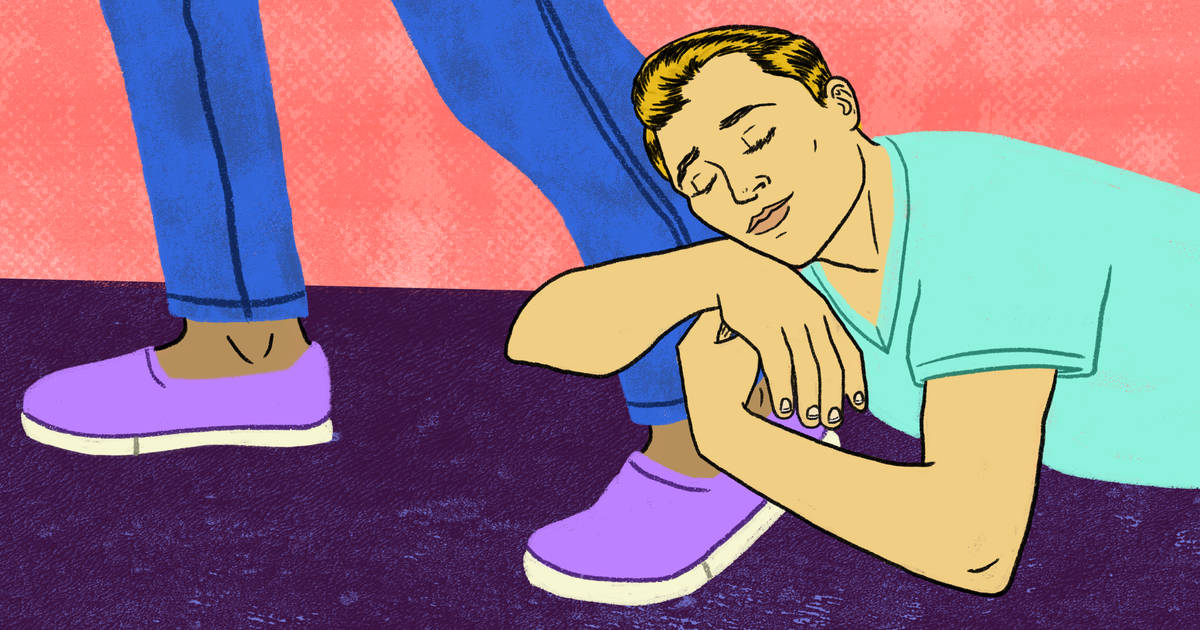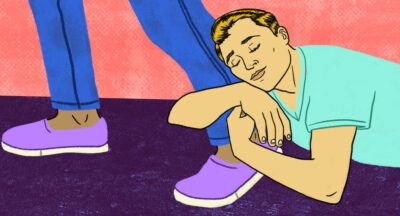
The many danger of dealing with a “clinger” in a romantic relationship. When a serious conversation is a must to avoid falling deeper into a rabbit hole!
Codependency in romantic relationships is a complex issue that has been extensively studied by researchers and mental health professionals. They are characterized by a dynamic where one partner excessively relies on the other for emotional support, validation, and identity. In a this type of relationship, the codependent partner neglects their own needs and puts the needs of their partner before their own, often to the point of self-sacrifice. It’s important to note that codependency can be harmful to both partners in the relationship and can lead to emotional and psychological distress. If you suspect that you or your partner may be struggling with codependency, it’s important to seek help from a mental health professional. Therapy can help both partners develop healthier communication and coping mechanisms, establish healthy boundaries, and learn to prioritize their own needs and desires. Let’s dig a bit deeper into the mental health challenge many faces when dealing with someone who is co-dependant. Yes, having someone who loves you to a point of gravitating their life around you, just like Earth graviating around the Sun is alluring, but it can get quite toxic long term. Let’s discuss the common characteristics of a codependent relationships:
- Definition of Codependency: Codependency is a condition where one partner in a romantic relationship has an excessive emotional or psychological reliance on the other partner. This can lead to an unhealthy dynamic where the codependent partner neglects their own needs and focuses solely on the needs of the other partner.
- Childhood Trauma: Many researchers believe that codependency may be linked to childhood trauma, such as emotional or physical abuse, neglect, or abandonment. Codependent individuals may have learned to suppress their own needs and feelings as a coping mechanism to survive in a dysfunctional family environment.
- Enabling Behavior: Codependent partners often engage in enabling behavior, where they protect their partner from the negative consequences of their actions. This can lead to a cycle of dependency where the partner continues to engage in harmful behaviors without any accountability.
- Low Self-Esteem: Codependent individuals may struggle with low self-esteem and may seek validation and approval from their partner. They may also have a fear of abandonment and may go to great lengths to avoid being alone.
- Fear of abandonment: Codependent partners may have a fear of abandonment and may go to great lengths to avoid being alone. They may also feel responsible for their partner’s happiness and may sacrifice their own needs to ensure that their partner is happy.
- Lack of boundaries: Codependent partners often have weak or non-existent boundaries, which can lead to the codependent partner feeling overwhelmed and resentful.
- Emotional instability: Codependent relationships can be emotionally unstable, with the codependent partner feeling anxious, depressed, or angry when they are not with their partner. They may also feel a sense of relief or validation when their partner needs their help or support.
So what can be done when dealing with someone who creates this co-dependency and what key strategies you can utlize to better manage these bouts of jealousy when distancing yourself from the situation:
- Set boundaries: It’s important to set clear boundaries with the codependent person and communicate them in a calm and assertive manner. This can help prevent the codependent person from overstepping your boundaries and enable you to prioritize your own needs and desires.
- Encourage self-care: Encourage the codependent person to engage in self-care activities such as exercise, hobbies, and relaxation techniques. This can help the person develop a stronger sense of self and reduce their reliance on others for emotional support.
- Provide support: While it’s important to set boundaries, it’s also important to provide emotional support to the codependent person. Listen to their concerns and offer validation and encouragement when appropriate.
- Seek therapy: Suggest that the codependent person seek therapy or counseling to address their codependency. Therapy can help the person develop healthier coping mechanisms and establish healthier boundaries.
- Be patient: Codependency is a complex issue and it may take time for the person to change their behavior. Be patient and understanding, and avoid blaming or criticizing the person.
It’s important to remember that codependency is a two-way street, and it’s possible that both partners in a relationship may engage in codependent behaviors. If you suspect that you may be codependent, it may be helpful to seek therapy or counseling for yourself as well.
dr.dan
Related Posts
Magic of pre-relationship therapy: If you are single and have made numerous dating mistakes in the past, relationship therapy may be the solution. The brutal truth of dating in the 21st century. Reality exposed!
With modern dating often filled with challenges like ghosting and breadcrumbing,...
The harmful impact of jealousy in relationships: How to address it effectively without allowing it to undermine the emotional bond with your partner. Effective long term strategies for building trust and connection.
Jealousy is a natural emotion, but when it becomes excessive or unchecked, it...
Here are 4 very simple ways to connect emotionally with the man in your life. It’s all about understanding their love language and where the mind and heart meets.
In my professional experience, I have encountered numerous men who express...
Exploring the upsides and downsides of excessive romantic dependence in new or existing relationship
Examining the advantages and disadvantages of being overly emotionally attached...




